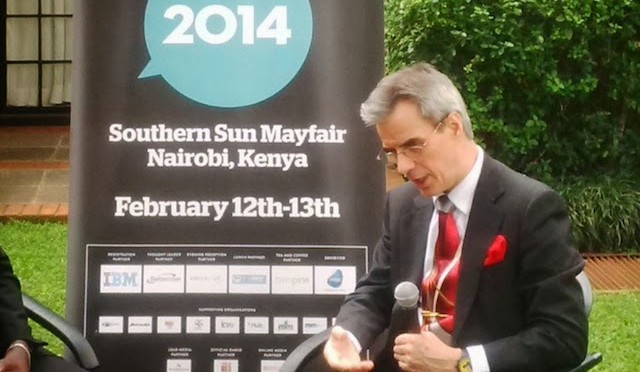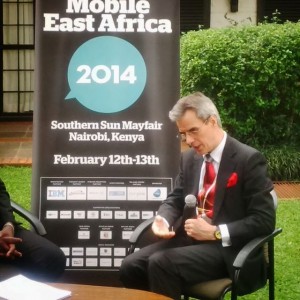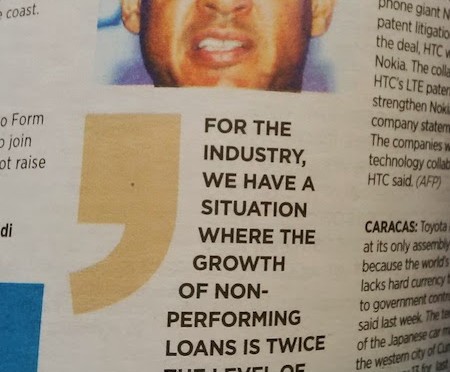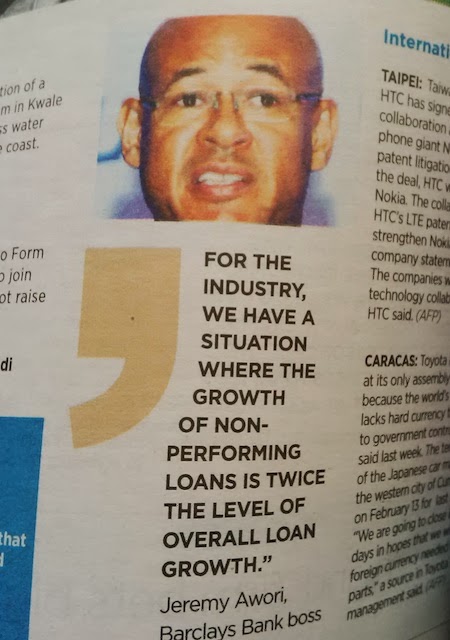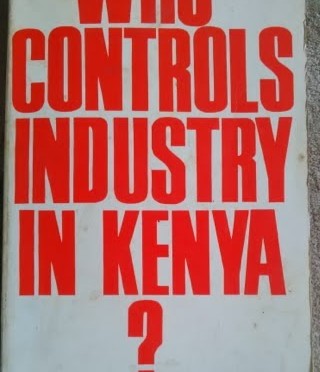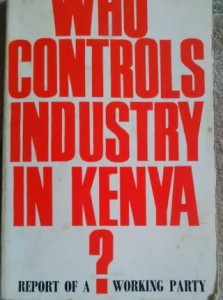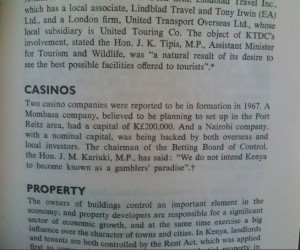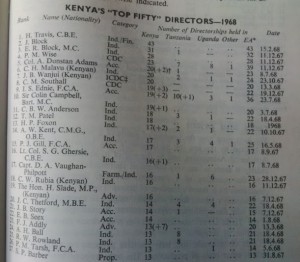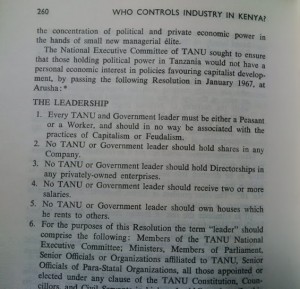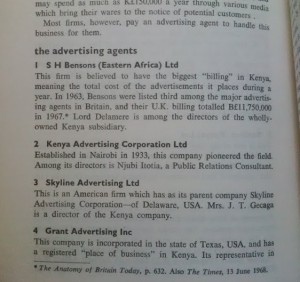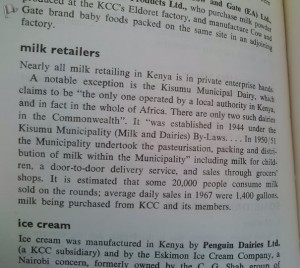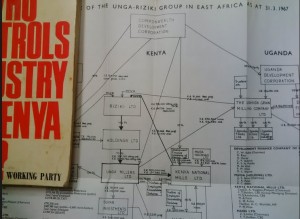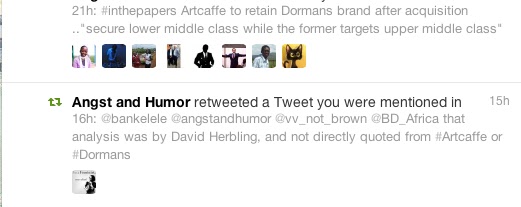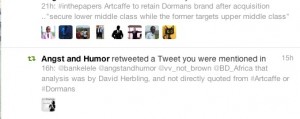More #MEA2014 Excerpts
Nduta Maina, Lead Digital Strategist, Aim Group, said that 2.5 quintillion (billion, billion) bytes of data are now being generated every day and that 2 years ago we only had 10% of the amount of data that we have today. This calls for tools and brains to decipher all this data, like predictive policing in Mexico and that a McKinsey study found that there was a potential of 140,000 to 190,000 critical data jobs out there yet to be filled.
Samuel Majani Founder & Ceo, Ghafla! spoke of creating what he said is now the 2nd most influential Kenya media company and the 4th largest website with about 1.5 million readers, and 30 million page views in a month. In two years, the landscape has gone from very little entertainment content online to the situation today where there are sites like Ghafla, Daily Post, Vibe Weekly, Nairobi Wire, The Kenyan and Niaje all putting content online.
The content they all produce was considered to be irresponsible, low quality, ‘crap’, but like tasty, junk food that has worked and made money, but they are now maturing into the next phase. Ghafla has now gotten more professional as they transition from an anonymous blog to a digital media company that is accessible, with known writers and offices. They now have an editorial team of 5 people who upload 55 pieces of content per day and do ethically journalistic things like calling to verify stories, giving credit to other sources, and issuing updates & apologies when they are wrong. They have advertising solutions for small enterprises (SME’s – who they might charge Kshs 5,000 [~$60] to large corporates who they might bill for Kshs 300,000 [~$3,500] and their revenue now comes from ad networks (15%), SME’s (40%) and large corporates (45%).
Simeon Oriko Community Lead, Open Institute & Co-Founder, Jamlab spoke about flash mobs as a metaphor for intense, but short-lived power of social media. He recapped a few initiatives he’s been involved in like:
- Creating an app ahead of the 2013 Kenya election called #gottovote to help people find locations near their homes, work places, commute routes where they could register and vote. They did this by scraping data from a 1,200 page government PDF – and they’ve got requests from groups in other African countries who want to repeat this.
- After a public service vehicle strike in Kenya, he created and pushed (along with others like @themumbi @ma3route @kenyaredcross ) the #carpoolke hashtag to bring together people with cars and people seeking rides – and this went viral. It was big for 2 days in September 2012, but today people are still using the #carpoolke tag to find rides. Also, amid its notable impact, 2 people got killed as a result of this initiative (they got rides, but were later found dead).
- During the #Westgate attack in Nairobi in September 2013, along with @NiNanjira, they crowdsourced 85 questions in 6-7 hours that Kenyans wanted answers on about the on-going attack/siege. Al Jazeera covered this initiative, but some people also tried to derail the initiative by injecting tribal mentions (which the administrators deleted).
He also asked if the online crowd on blogs, twitter or other social media could be defined as a community as two prominent bloggers Idd Salim and Billy Branks (in Uganda) had recently passed away – but few in the ‘community’knew that they had health problems or did anything about it
Later, in the Q&A after he gave praise to Matthew Dawes, the organizer of the Mobile East Summit, for offering a 35% discounts for students and developers to attend. He said that during the first event some years back, he offered to volunteer at Mobile East and got a chance to attend the event for free – and wished that more local corporates would also give similar opportunities to techies.
Stone Atwine Co-Founder & CEO, Redcore Interactive spoke out his Remit.Ug in the remittance market which is ready for disruption. He said the established brick and mortar remittance giants are monopolies who make it hard for new entrants, but he considers them to be slow, not agile (customers can’t make fractional withdrawals), are insecure (customers have to carry sizable physical cash from their branches), and they are expensive (share revenue with agents with the result that about 12% of money sent to Africa is spent on fees.
He believes that, with his mobile solution, Africans can do all of the above in a better way all while spending a fraction of the above costs – as all one needs is a mobile phone and an ID document. The biggest challenge is gaining customer trust as Remit is a small company and that even getting regulators to issue licenses has a challenge (They’ve had numerous requests for shareholders and director information, share capital, Interpol certificates, and proof of anti-money laundering/terror systems).
Through marketing and new consumer education, they hope to succeed and grow volumes, by being transparent in pricing (they make money in forex), having quality customer service, and also as they have flat fees, no matter where money is being sent from. Next, they want to go from mobile to delivery direct into bank accounts, and allow remittance recipients to pay bills.
He believes that competition from mobile is going to bring prices down and that eventually mobile will phase out brick & mortar remittance outlets. They now only process Visa and MasterCard – but want to add M-Pesa and Airtel Money – and he vowed that if Safaricom gave them access to their M-Pesa API, they would test it immediately and after three days, be able to send money to M-Pesa.
Kyai Mullei, CEO & Co-Founder, Mobi Changa spoke about the concept of crowd-funding or ‘giving’ that is found all across Africa under different names like Ujamaa Ubuntu, Gutwerera and Harambee.
There is a lack of safety nets and so extended families chip in for events like weddings and funerals due to social pressure.
The collections of such funds is now clumsy as with multiple payment modes to be tabulated and consolidated, (Western Union, cash), and is often expensive with ceremonial expenses taking up 30% of collections.
Their platform integrates with Facebook, and Twitter and can receive payments via PayPal, M-Pesa, Airtel Cash, Credit cards and the money is instantly available. Also, one can start a fundraiser on M-Changa in a few minutes using a very basic mobile phone – and it allows everyone to be aware of the fundraiser in real time, know how many other people have donated (and how much). Also, other potential givers, don’t have to wait to be invited if they know the fundraiser and can start to give.
They are also working on recurring payments model and also to enhance M-Changa for school fees as that is the biggest use of their platform now. Also, another big use is fundraising for burial expenses and they want to improve on that.
